There are actually two questions in one. And question from the title has very little to do with concerns expressed by the OP in the comments afterwards.
Although I realize that for the OP it is their particular case that matters, for the readers coming from Google, it is important to answer to the more general question, that can be phrased as "is concatenation as safe as prepared statements if I made sure that every literal I am concatenating is safe?". So, I would like to concentrate on this latter one. And the answer is
Definitely NO.
The explanation is not that direct as most readers would like, but I'll try my best.
I have been pondering on the matter for a while, resulting in the article (though based on the PHP environment) where I tried to sum everything up. It occurred to me that the question of protection from SQL injection is often eludes toward some related but narrower topics, like string escaping, type casting and such. Although some of the measures can be considered safe when taken by themselves, there is no system, nor a simple rule to follow. Which makes it very slippery ground, putting too much on the developer's attention and experience.
The question of SQL injection cannot be simplified to a matter of some particular syntax issue. It is wider than average developer used to think. It's a methodological question as well. It is not only "Which particular formatting we have to apply", but "How it have to be done" as well.
(From this point of view, an article from Jon Skeet cited in the other answer is doing rather bad than good, as it is again nitpicking on some edge case, concentrating on a particular syntax issue and failing to address the problem at whole.)
When you're trying to address the question of protection not as whole but as a set of different syntax issues, you're facing multitude of problems.
- the list of possible formatting choices is really huge. Means one can easily overlook some. Or confuse them (by using string escaping for identifier for example).
- Concatenation means that all protection measures have to be done by the programmer, not program. This issue alone leads to several consequences:
- such a formatting is manual. Manual means extremely error prone. One could simply forget to apply.
- moreover, there is a temptation to move formatting procedures into some centralized function, messing things even more, and spoiling data that is not going to database.
- when more than one developers involved, problems multiply by a factor of ten.
- when concatenation is used, one cannot tell a potentially dangerous query at glance: they all potentially dangerous!
Unlike that mess, prepared statements are indeed The Holy Grail:
- it can be expressed in the form of one simple rule that is easy to follow.
- it is essentially undetacheable measure, means the developer cannot interfere, and, willingly or unwillingly, spoil the process.
- protection from injection is really only a side effect of the prepared statements, which real purpose is to produce syntactically correct statement. And a syntactically correct statement is 100% injection proof. Yet we need our syntax to be correct despite of any injection possibility.
- if used all the way around, it protects the application regardless of the developer's experience. Say, there is a thing called second order injection. And a very strong delusion that reads "in order to protect, Escape All User Supplied Input". Combined together, they lead to injection, if a developer takes the liberty to decide, what needs to be protected and what not.
(Thinking further, I discovered that current set of placeholders is not enough for the real life needs and have to be extended, both for the complex data structures, like arrays, and even SQL keywords or identifiers, which have to be sometimes added to the query dynamically too, but a developer is left unarmed for such a case, and forced to fall back to string concatenation but that's a matter of another question).
Interestingly, this question's controversy is provoked by the very controversial nature of Stack Overflow. The site's idea is to make use of particular questions from users who ask directly to achieve the goal of having a database of general purpose answers suitable for users who come from search. The idea is not bad per se, but it fails in a situation like this: when a user asks a very narrow question, particularly to get an argument in a dispute with a colleague (or to decide if it worth to refactor the code). While most of experienced participants are trying to write an answer, keeping in mind the mission of Stack Overflow at whole, making their answer good for as many readers as possible, not the OP only.
